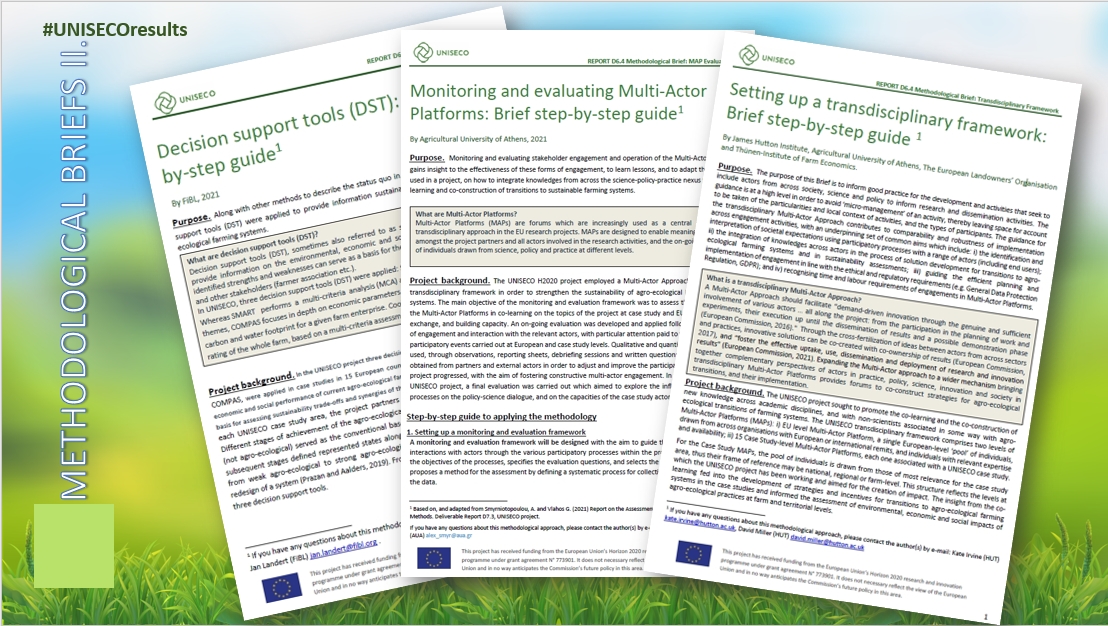The purpose is to ensure good practice for the development and implementation of activities that seek to include actors from across sectors and practice to inform the project’s research and dissemination activities.
The step-by-step process provides guidance on developing and carrying out the data collection for SES assessments including the identification of possible data sources and explanation of the variables to be collected.
Along with other methods to describe the status quo in the case studies, the three decision support tools (DST) provide information sustainability performance of current agro-ecological farming systems and facilitate co-learning amongst actors.
The Social Network Analysis can be carried out to analyse governance structures. It mainly focuses on the local network structure (relations, influences, missing actors, etc.) and on the way actors and networks participate in the formulation and implementation of public policies and/or private initiatives.
The purpose of a participatory multi-criteria analysis is to co-construct and co-assess market and policy instruments regarding their performance and relevance and to enhance the awareness and understanding of how to improve policy frameworks.
Monitoring and evaluating stakeholder engagement and operation of the Multi-Actor Platforms gains insight to the effectiveness of these forms of engagement, to learn lessons, and to adapt the processes used in a project, on how to integrate knowledges from across the science-policy-practice nexus fostering co-learning and co-construction of transitions to sustainable farming systems.
